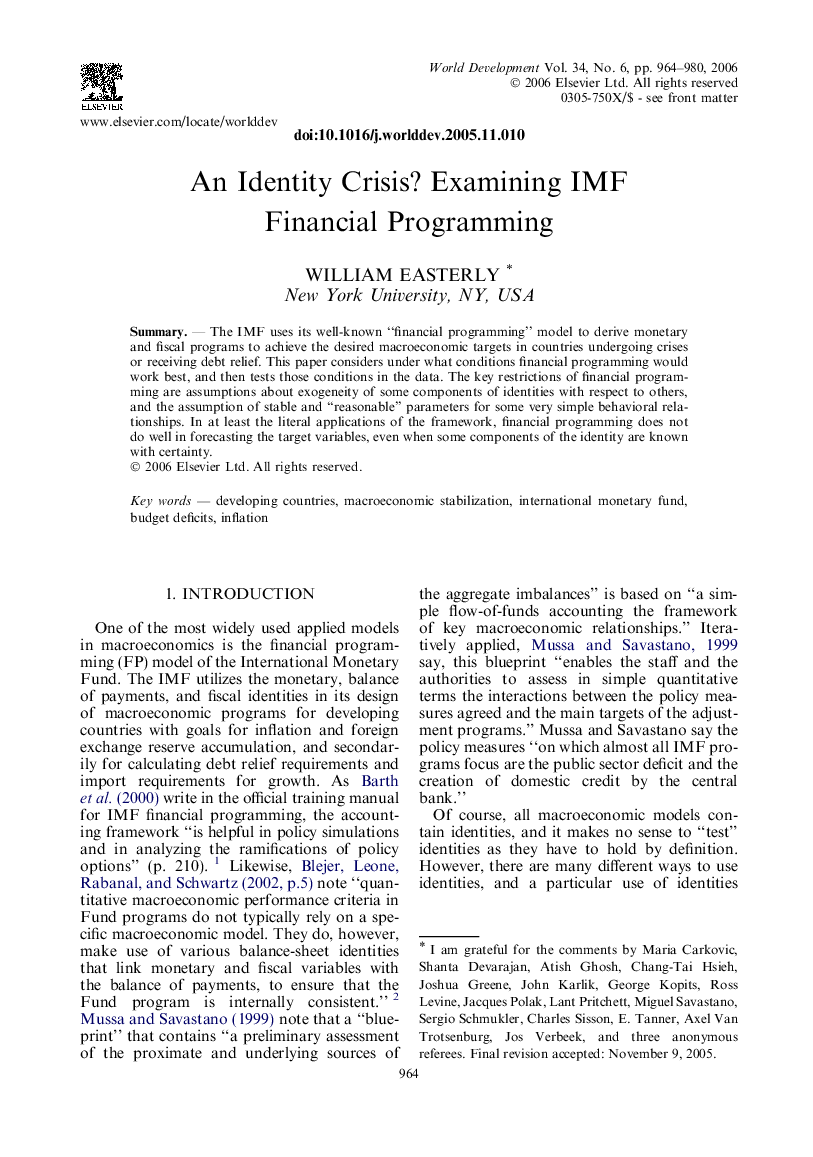| کد مقاله | کد نشریه | سال انتشار | مقاله انگلیسی | نسخه تمام متن |
|---|---|---|---|---|
| 992598 | 935847 | 2006 | 17 صفحه PDF | دانلود رایگان |

SummaryThe IMF uses its well-known “financial programming” model to derive monetary and fiscal programs to achieve the desired macroeconomic targets in countries undergoing crises or receiving debt relief. This paper considers under what conditions financial programming would work best, and then tests those conditions in the data. The key restrictions of financial programming are assumptions about exogeneity of some components of identities with respect to others, and the assumption of stable and “reasonable” parameters for some very simple behavioral relationships. In at least the literal applications of the framework, financial programming does not do well in forecasting the target variables, even when some components of the identity are known with certainty.
Journal: World Development - Volume 34, Issue 6, June 2006, Pages 964–980